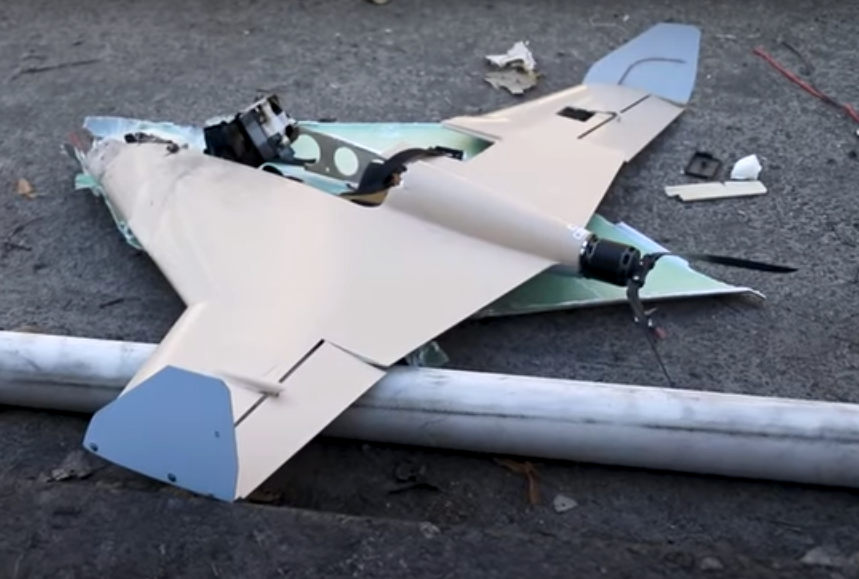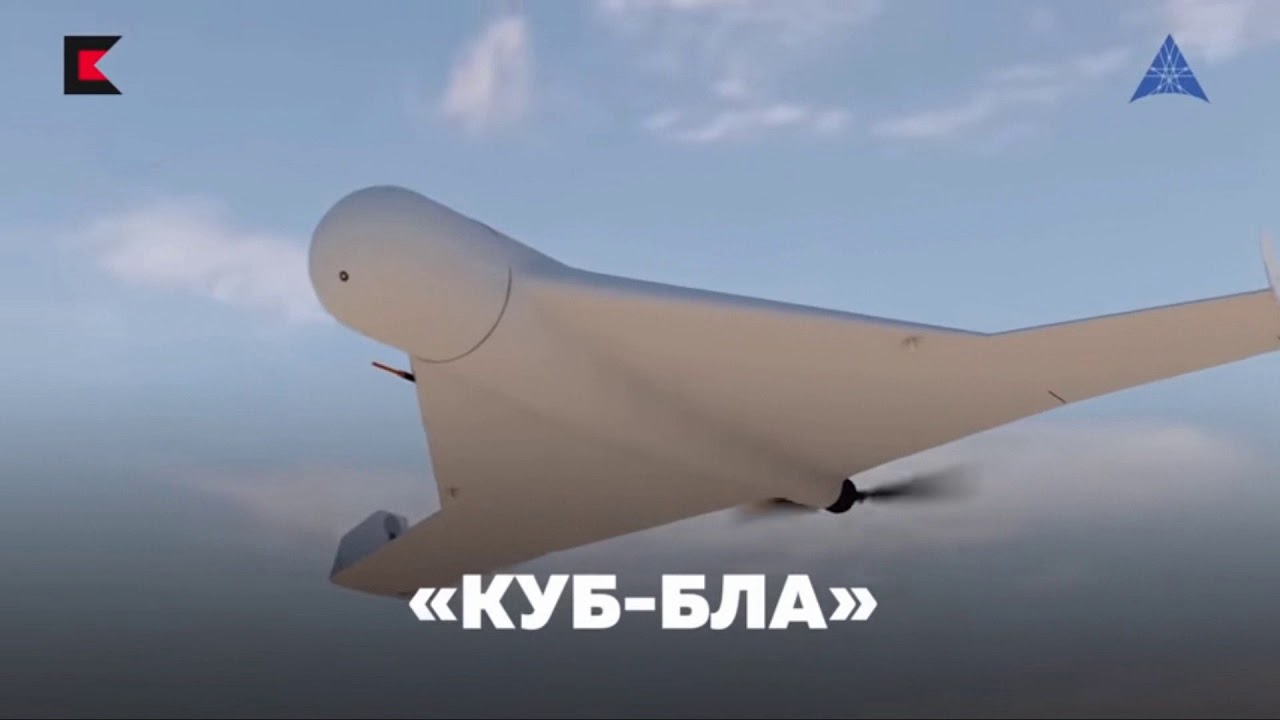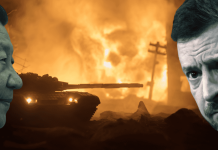Russia’s Cube loitering munition, also known as the Zala KYB-UAV or “KUB-BLA,” has gained attention for its advanced battlefield capabilities. New updates reveal that it can now deliver one-time group strikes on enemy targets.
Russian defense conglomerate Rostec officially disclosed this development on its Telegram channel, marking an evolution in the drone’s operational utility.
Rostec revealed that the Cube is a versatile drone, capable of acting as a guided projectile that can strike immediately or hover over a designated point, waiting for the most opportune moment to attack.
This hovering function allows the drone, or a group of them, to coordinate and strike simultaneously on command. Whether flying at low or high altitudes, the Cube delivers its explosive charge precisely, making it a formidable tool in Russia’s arsenal.
Rostec noted that the Cube’s warhead is constructed using an explosive 1.5 times more powerful than TNT. The explosive, combined with a high-density fragmentation effect, is designed to effectively neutralize enemy defenses.
The corporation stated that the dense fragments “practically nullify the means of defense” employed by adversaries, significantly enhancing the drone’s lethality against personnel and armored targets.
These loitering munitions have proven their worth in various combat scenarios during Russia’s ongoing Special Military Operation (SMO). The Cube has been utilized extensively to target Ukrainian anti-aircraft systems, radar stations, and personnel.
Since the beginning of the conflict, hundreds of these drones have been deployed, with reports indicating that they have been instrumental in neutralizing critical enemy assets.
Kalashnikov, a subsidiary of Rostec, manufactures the Cube, and it has consistently increased production year after year. Rostec said that “thousands” of these drones have already been manufactured and supplied to the Russian military under state defense orders.
Further, the drones undergo continuous modernization, incorporating feedback from soldiers in Ukraine.
A Nightmare For Ukraine?
The Russian KUB-BLA drone, also known as the “Cube,” has demonstrated significant effectiveness in targeting Ukrainian forces during the ongoing war. Earlier this year, reports indicated that the upgraded drone had transformed it “into a more formidable nightmare for the enemy.”
The Cube UAV is constructed with a “tailless” design, incorporating a triangular wing that has a variable sweep along the leading edge and is fitted with wing tips. One of the key achievements of the developers was creating a relatively low-cost drone capable of delivering precise strikes on enemy positions.
Powered by an electric motor that drives a pusher propeller, the drone is lightweight, weighing around 15 kg with a wingspan of approximately 120 cm.
Its shape resembles the “Geranium” UAV, albeit in a more compact form. However, despite its smaller dimensions, the Cube remains challenging to detect and intercept with conventional anti-aircraft systems.
Denis Fedutinov, the editor-in-chief of Russia’s Unmanned Aviation magazine, said that the Cube’s small mass, composite materials, and electric motor contribute to its low acoustic and thermal signatures, making it challenging for enemy forces to detect.

Additionally, the drone can be launched discreetly using a portable catapult, enhancing its operational stealth and making it a successful solution for precision strikes.
However, like many early designs, the Cube UAV has limitations. One major drawback is its relatively short flight duration, around 30 minutes, which limits its operational range.
Extending the drone’s range could allow it to be launched from positions deeper within Russian-controlled territory, reducing the risk to operators and enabling strikes further behind enemy lines.
Another limitation is its small payload capacity. The drone is limited to transporting approximately 3 kg of explosives. Increasing its payload would enhance the Cube UAV’s flexibility, allowing it to target a wider range of enemy assets.

The Cube does not have an optical surveillance and targeting system; it depends entirely on pre-programmed coordinates entered into the control system from external reconnaissance. The absence of an onboard targeting system has reduced the drone’s adaptability during flight.
Fedutinov suggested that adding an optoelectronic system could significantly enhance the Cube’s performance, although it would also increase the drone’s overall cost.
He suggested possible compromises, including the use of cost-effective optics paired with smart onboard video processing to modify the drone’s flight path and enhance its guidance during the final stage of the mission.
Despite these limitations, the Cube UAV remains a crucial part of Russia’s military strategy, and ongoing improvements and upgrades are being made to increase its combat effectiveness.
- Contact the author at ashishmichel(at)gmail.com
- Follow EurAsian Times on Google News




